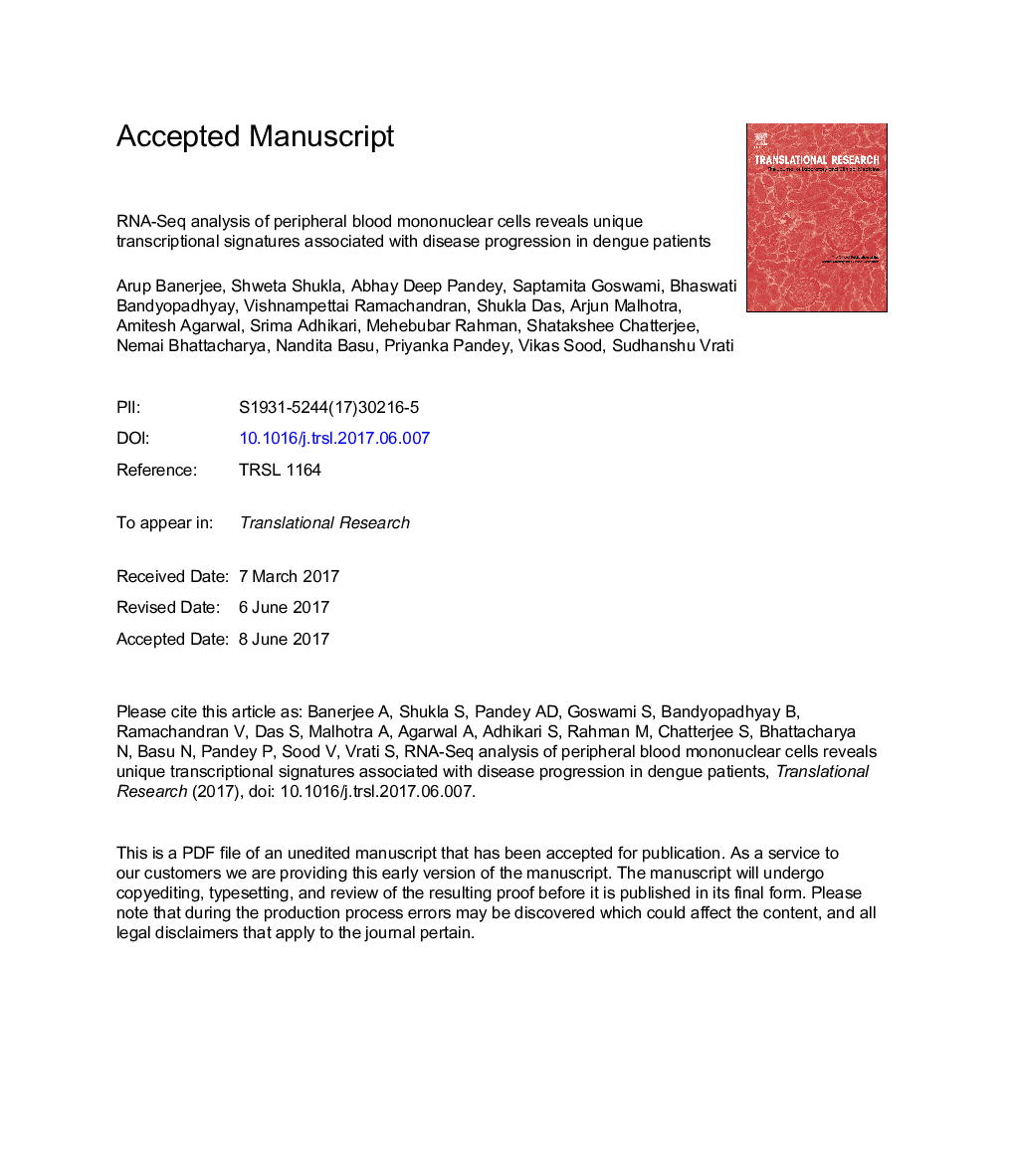| Article ID | Journal | Published Year | Pages | File Type |
|---|---|---|---|---|
| 5684929 | Translational Research | 2017 | 59 Pages |
Abstract
Patients infected with Dengue virus usually present a mild, self-limiting febrile dengue infection (DI) that occasionally leads to a potentially lethal complication, called the severe dengue (DS). The ability to identify the prognostic markers of DS could allow an improved disease intervention and management. To identify the transcriptional signatures associated with the dengue disease progression, we carried out the high-throughput sequencing of the RNA isolated from the peripheral blood mononuclear cells (PBMCs) of the dengue patients of varying severity and compared with that in the patients with other febrile illnesses (OFIs) or the healthy controls. The transcriptional signatures that discriminated the DS patients from OFI and DI patients were broadly related to the pathways involving glycine, serine, and threonine metabolisms, extracellular matrix organization, ubiquitination, and cytokines and inflammatory response. Several upregulated genes in the inflammatory process (MPO, DEFA4, ELANE, AUZ1, CTSG, OLFM4, SLC16A14, and CRISP3) that were associated with the dengue disease progression are known to facilitate leukocyte-mediated migration, and neutrophil activation and degranulation process. High activity of MPO and ELANE in the plasma samples of the follow-up and recovered dengue patients, as well as and the presence of a larger amount of cell-free dsDNA in the DS patients, suggested an association of neutrophil-mediated immunity with dengue disease progression. Careful monitoring of some of these gene transcripts, and control of the activity of proteins encoded by them, may have a great translational significance for the prognosis and management of the dengue patients.
Keywords
ELANElog2 fold changeubiquitin specific peptidase 18EphB2NGSGAPDHCUL3DWSISG15USP18DENVLFCPBMCsMPONETsELISAEnzyme-linked immunosorbent assayneutrophil extracellular trapsNext generation sequencingSevere dengueperipheral blood mononuclear cellsDEGDengue infectionmyeloperoxidaseDengue virusinterferon-stimulated gene 15Differentially expressed geneCullin 3glyceraldehyde 3-phosphate dehydrogenase
Related Topics
Health Sciences
Medicine and Dentistry
Medicine and Dentistry (General)
Authors
Arup Banerjee, Shweta Shukla, Abhay Deep Pandey, Saptamita Goswami, Bhaswati Bandyopadhyay, Vishnampettai Ramachandran, Shukla Das, Arjun Malhotra, Amitesh Agarwal, Srima Adhikari, Mehebubar Rahman, Shatakshee Chatterjee, Nemai Bhattacharya,
